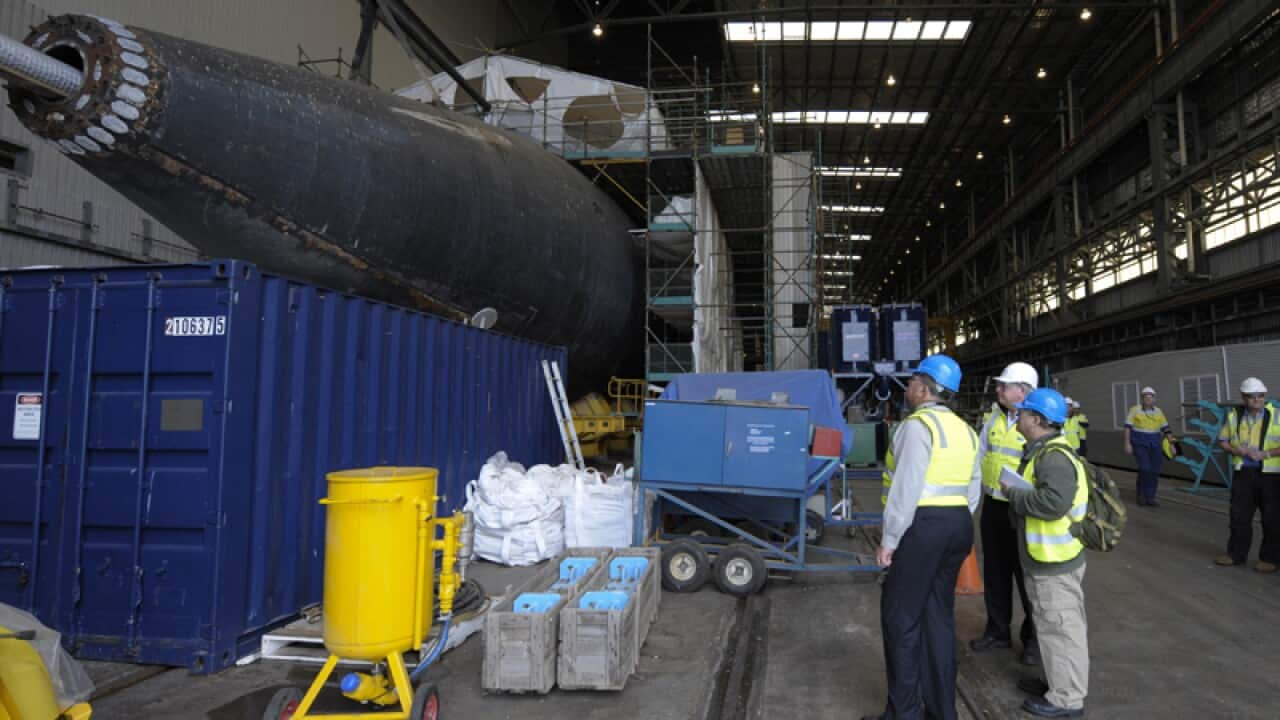Japan's commitment to build the RAN's next class of submarines in Australia should it win the contract has been welcomed by both sides of politics.
Japanese ambassador Sumio Kusaka said Japan could work with Australia's government-owned submarine builder ASC in whatever arrangement best suited the Australian government.
"We will go along with whatever decision the Australian government makes," Mr Kusaka told The Australian newspaper.
Under the competitive evaluation process used to choose who will build the new subs, the contenders were asked to bid for construction in Australia, overseas or a mixture of the two.
Two of the three contenders, German firm TKMS and French firm DCNS, have said they can build in Australia but Japan previously had hedged on the proposed construction location.
Industry Minister Christopher Pyne, whose seat appears at risk in an electoral backlash should the government opt for an overseas build, is delighted.
"As a South Australian, that is music to my ears, but we will go through the proper processes and announce it at the appropriate time," Mr Pyne said.
Labor leader Bill Shorten said there should be a submarine building industry in Australia.
"For me, what matters is value for taxpayers, jobs in Australia and the defence of Australia, he said.
Opposition defence spokesman Stephen Conroy said the government should ignore all proposals that do not involve construction in Australia.
"When Chris Pyne and when (Defence Minister) Marise Payne and (Prime Minister) Malcolm Turnbull receive those bids, they should only consider the three domestic build bids," Mr Conroy told ABC radio on Friday.
The competitive evaluation process calls for bids to close in November and an announcement expected early next year.
The head of defence company Lockheed Martin Australia, Raydon Gates, warned on Friday that any delay in getting new subs into service could create strategic risk.
Mr Gates said there is real concern about a capability gap, the period of potentially years between retirement of the ageing Collins subs and arrival of their replacements, when few or no submarines are available.
"If anyone says we can take a gap for six months, 12 months, 18 months, that is risk with a capital 'R'," Mr Gates told reporters in Canberra.
The government says Australian shipbuilding will be centred in Adelaide but there will be plenty for other states.
Resources sector engineering firm CivMec is pitching to build the submarines in Western Australia, working in conjunction with the chosen designer.
"Our experience means we certainly have the capability to be their in-country builder," company executive chairman James Fitzgerald said in a statement.

